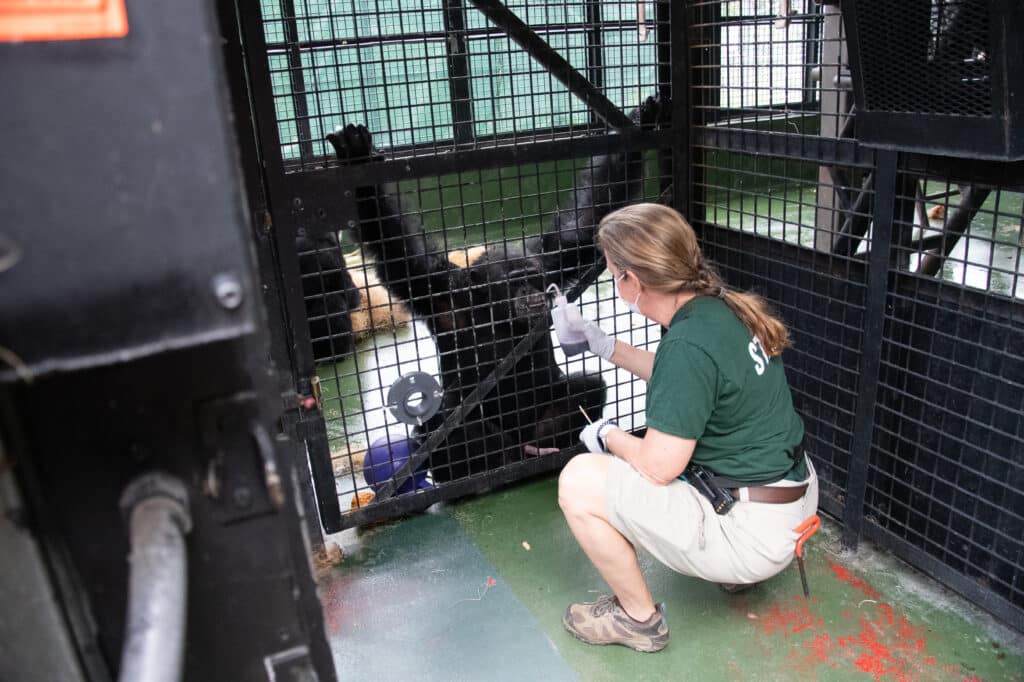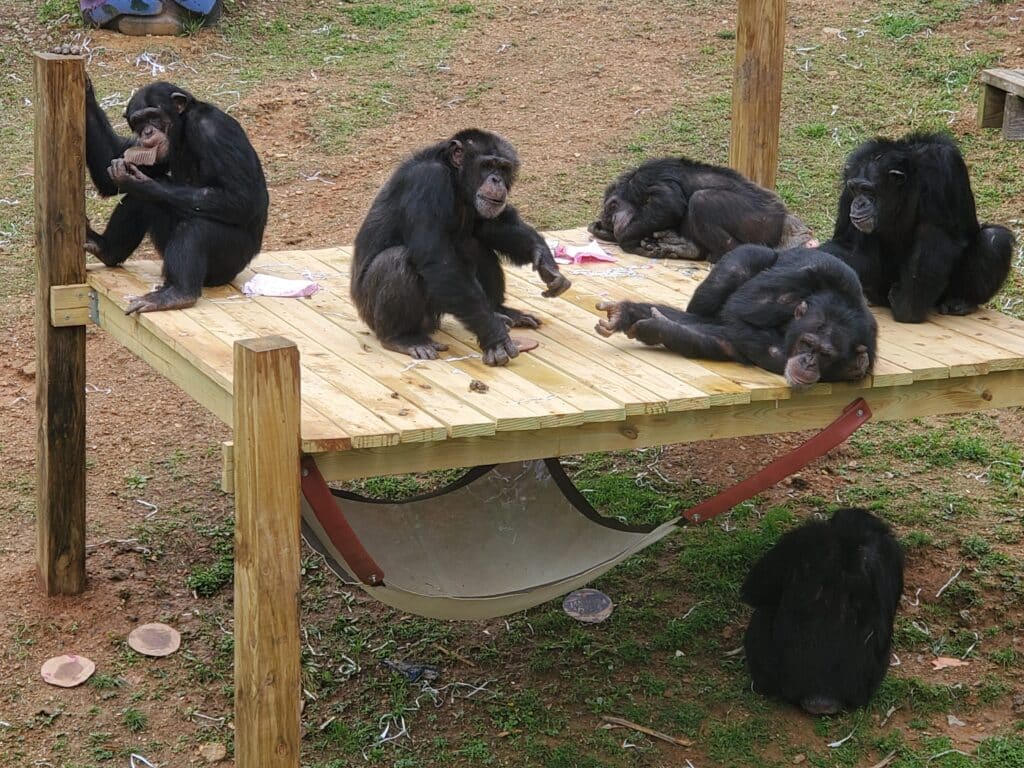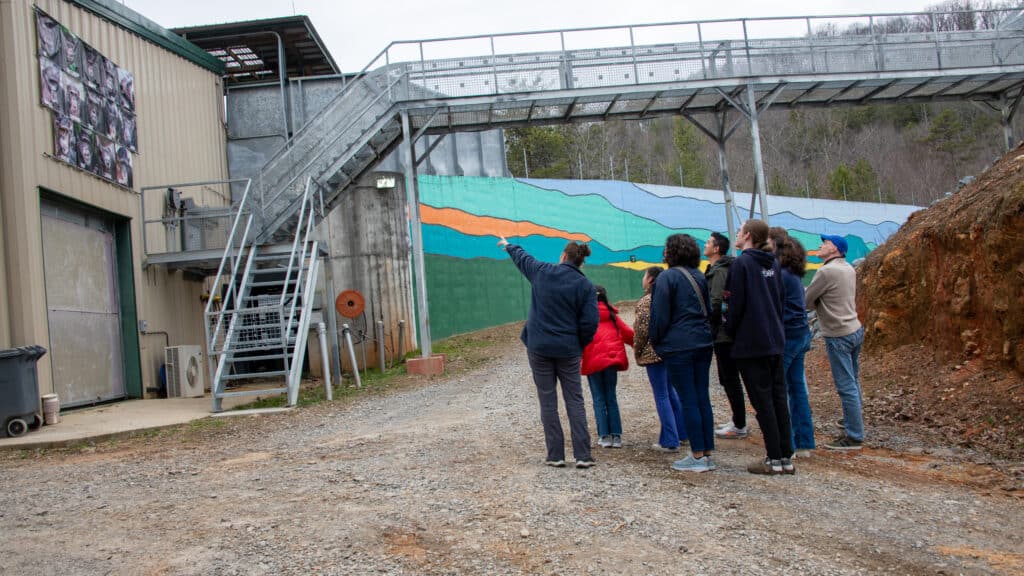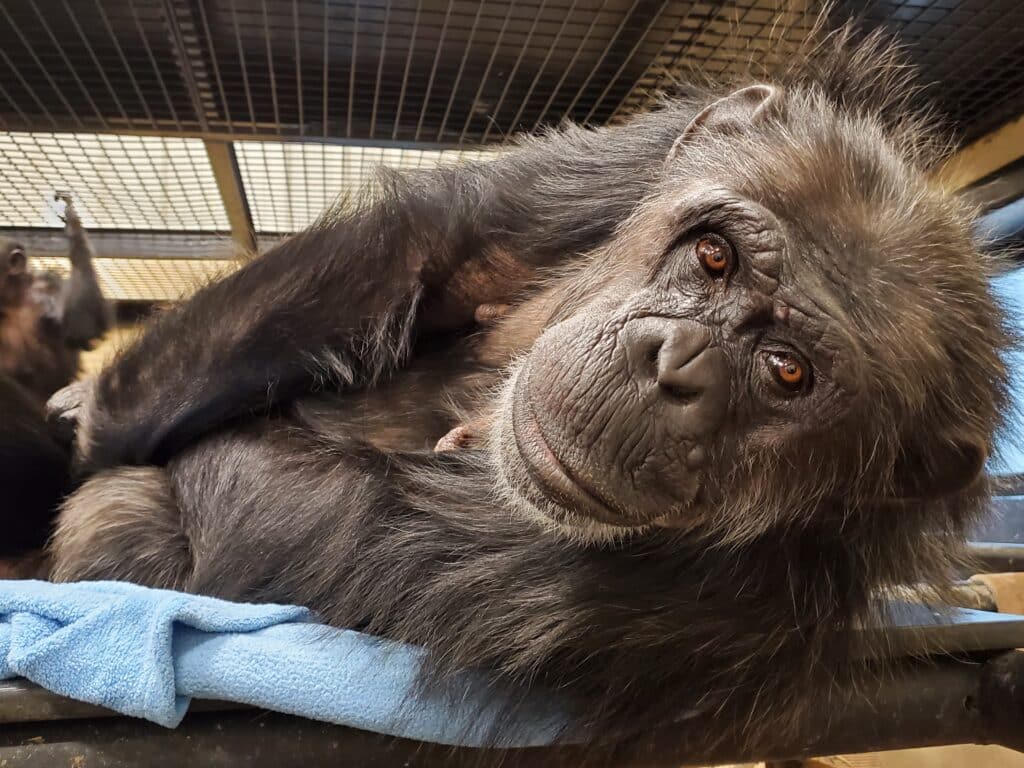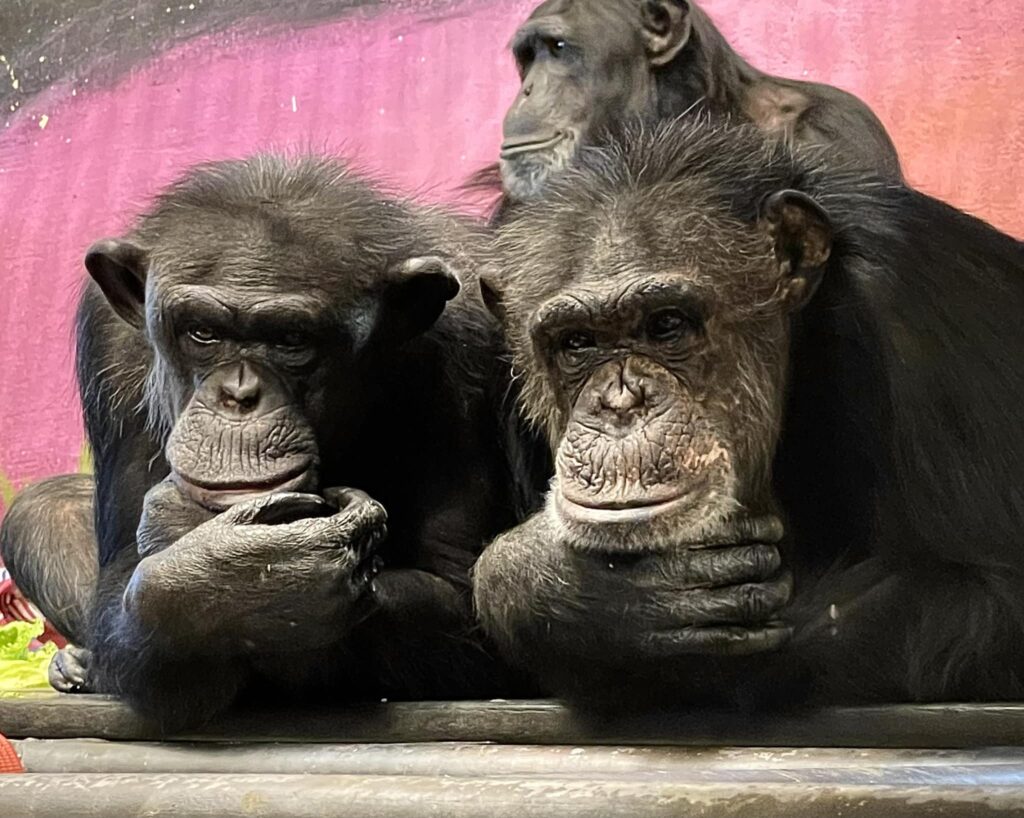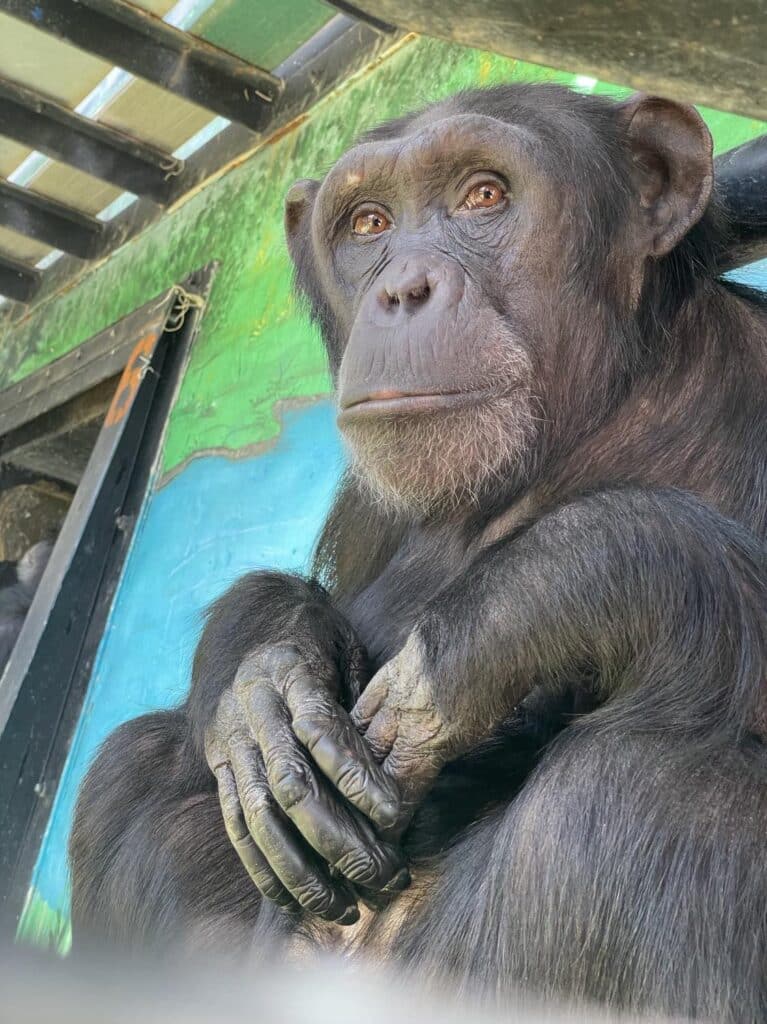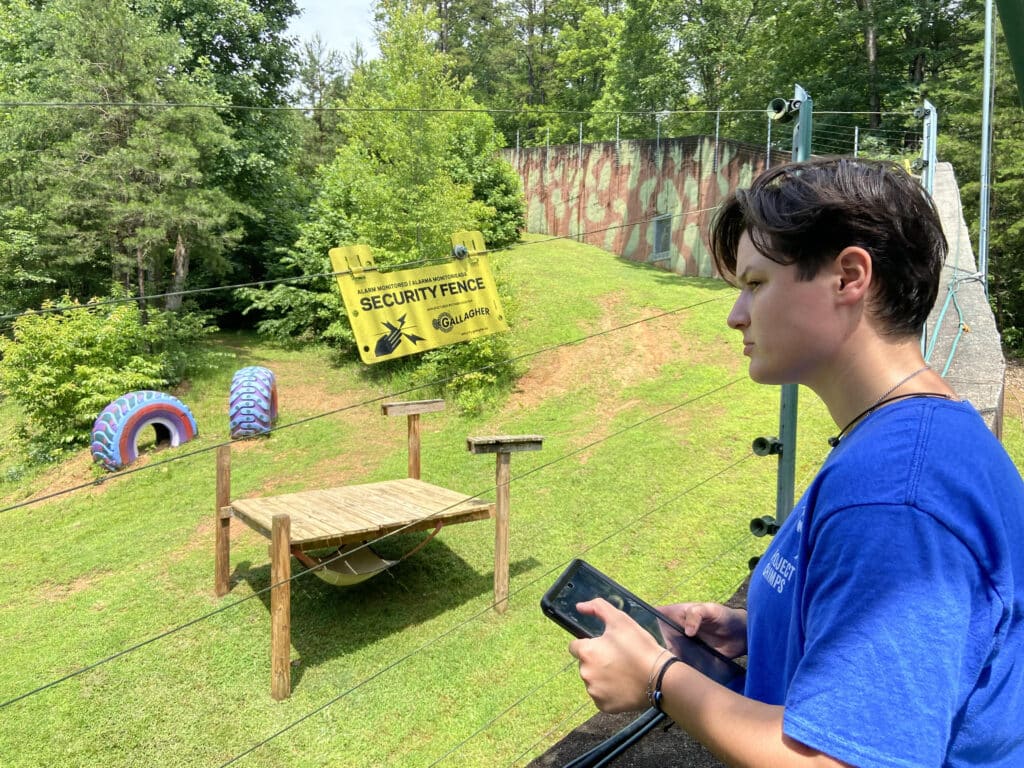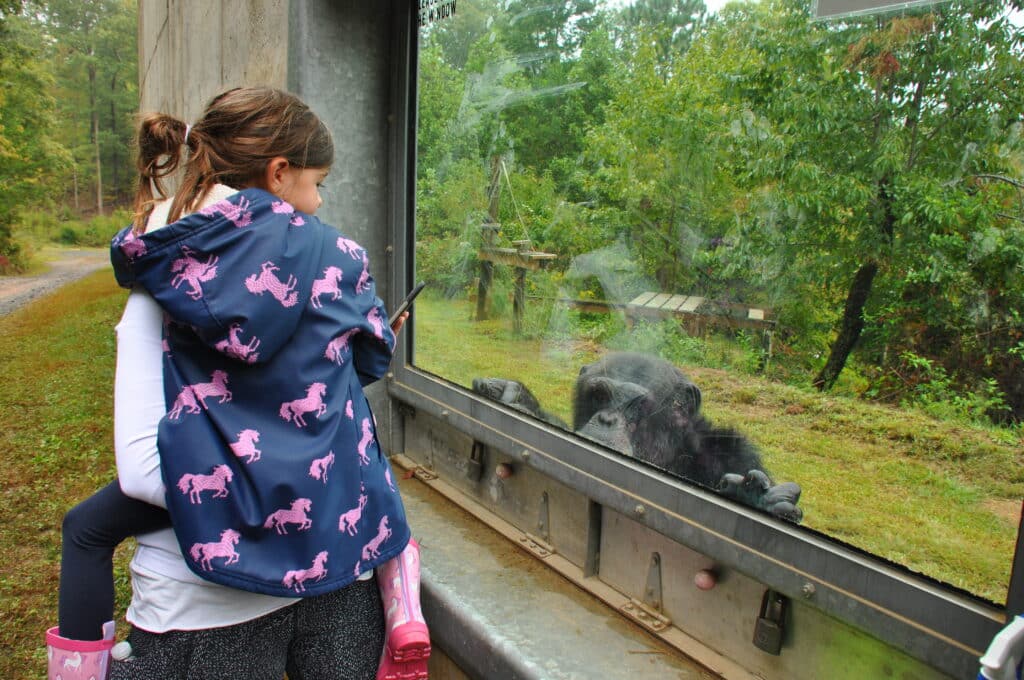Posts Tagged ‘behavior’
Passion for Primates
By James Oatis At Project Chimps, giving former research chimpanzees a comfortable and enjoyable retirement is not just our mission, it’s our passion. While much can be said about the chimps themselves, it’s the support and love from staff and volunteers that is the foundation of Project Chimps. Chimpanzee care is a very intensive and…
Read MoreChimpanzee Intelligence: The Vala-chimp-torians of the Sanctuary
By James Oatis Chimpanzee intelligence is not in question here. In scientific circles, a common fascination comes from the intelligence of animals. From elephants to dolphins, scientists have found many animals that have gained a reputation for being wise or smart. It is important, however, to distinguish human and animal intelligence as most of the…
Read MoreDiscover the Magic of Chimpanzees: Why You Should Visit Project Chimps
Have you ever looked into the eyes of a chimpanzee and wondered what stories they hold? At Project Chimps, a sanctuary nestled in the mountains of Morganton, Georgia, you can visit and find out!
Read MoreChimp Conflicts and the Peacemaker
Just like people, chimpanzees’ friendships are important as they care for each other, as seen by behaviors and time spent together.
Read MoreDo chimps get bored?
While Leo loves the newspaper, he only sees it about once or twice a week. This is to keep the newspaper as a treat and preserve Leo’s fondness for it.
Read MoreYou’re My Best Friend
Just like people, chimpanzees’ friendships are important as they care for each other, as seen by behaviors and time spent together.
Read MoreOn the Fence with Chimp Behavior
Gracie is one of the chimps who loves to keep the caregivers on the fence about what her behavior will be. With the new construction, everyone is curious about what her reaction will be.
Read MoreSocial Structure at Project Chimps
Thinking about getting an internship with experience? This intern at Project Chimps shows that a passion for animal care and a connection with a chimp can spark a summer-long research project.
Read MoreWhy human oriented isn’t always good for chimps
We have “chimp chimps” and “human oriented chimps”. Chimp chimps prefer interacting with their fellow troop members over interacting with human caregivers. Human oriented chimps like to focus their time and energy on human caregivers.
Read MoreInternships at Any Age: Meet James
After spending 4 months at Project Chimps, James Haworth is proof that internships at any age have value.
Read More
